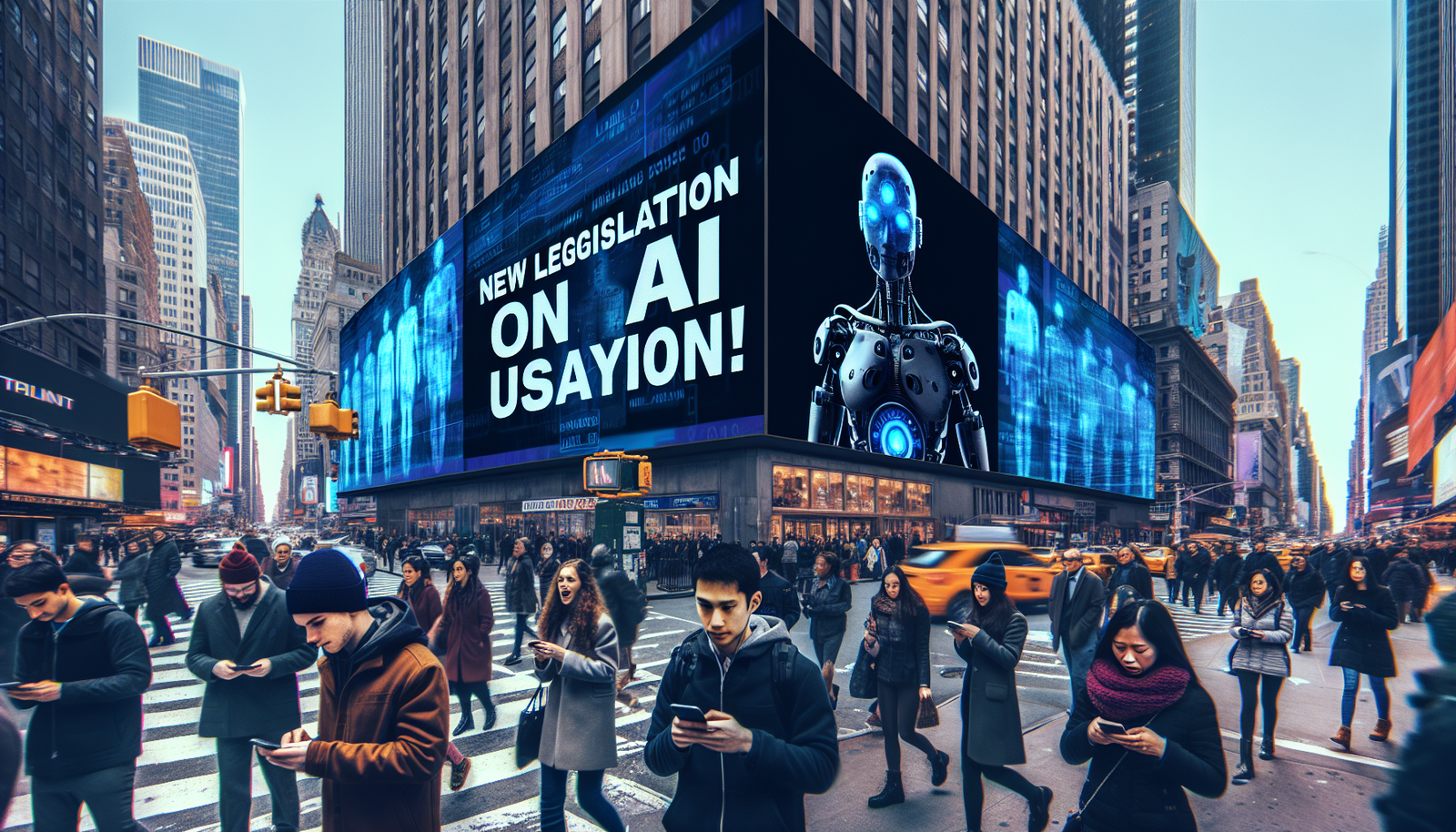The State of New York is enacting innovative legislation aimed at regulating the use of artificial intelligence. This initiative marks a decisive turning point in the management of emerging technologies by public administrations. Government agencies will not only need to *evaluate* their AI tools but also *publish transparent reports* on their usage.
This law prohibits the use of AI for automatic decisions regarding social benefits, reinforcing the necessity of *rigorous human oversight*. By protecting state workers, this legislation aims to establish a solid framework for responsible use of AI.
Enhanced oversight of AI usage
The government of the State of New York imposes new regulations on the use of artificial intelligence software. Recent legislation, signed by Governor Kathy Hochul, establishes strict control mechanisms for government agencies. This decision follows growing concerns about the ethical and responsible use of AI in the public sector.
Mandatory evaluations of AI software
State agencies must now conduct systematic evaluations of any software using algorithms or artificial intelligence techniques. Each evaluation will be submitted to legislative leaders and made available to the public online. This process aims to ensure increased transparency in government operations, addressing potential abuses related to the use of AI.
Restrictions on the application of AI
The legislation also prohibits the use of AI in certain automated decisions, particularly those related to social benefits. Thus, a decision on the granting of unemployment benefits or child assistance cannot be fully automated. Constant human oversight will be required to ensure adequate supervision of decisions that could affect human lives.
Protection of state employees
The legislative provisions include measures to protect state workers from limitations imposed by AI. No employee shall see their working hours or responsibilities reduced due to the implementation of AI tools. This rule aims to prevent professional pitfalls that could have negative repercussions on public employment.
Political vision and future implications
Senator Kristen Gonzalez, responsible for designing this law, emphasizes that this is a fundamental step in establishing guarantees to regulate new technologies. The regulatory framework aims to prevent abuses that could arise from unregulated use of artificial intelligence by the government of New York. This initiative is part of a global trend towards increasing regulation of algorithmic technologies and AI.
The law represents a step towards stricter control of AI, ensuring that its use aligns with ethical standards and societal expectations. The ramifications of this legislation could influence other states to follow New York’s example, potentially forging a change in the national regulation of artificial intelligence.
For more information on the concept of regulating artificial intelligence models in the United States, you can read this article. Read the article here.
Frequently asked questions about AI legislation in New York
What is the new legislation concerning the use of AI by the government of the State of New York?
The new legislation requires that government agencies in the State of New York conduct evaluations of any software using AI and publish reports detailing their usage.
What are the specific requirements imposed by this law regarding the use of AI?
Agencies must conduct evaluations of software using algorithms and submit these evaluations to the governor and legislative leaders while making them accessible online.
Does this mean that the use of AI will be completely banned in certain situations?
Yes, the law prohibits the use of AI for certain automated decisions, such as those related to unemployment benefits or childcare, unless a human constantly oversees the process.
Will state employees be affected by the integration of AI?
No, the legislation protects employees from a reduction in their hours or responsibilities due to the use of AI.
Who initiated this legislation and what is its main goal?
The legislation was proposed by State Senator Kristen Gonzalez, aiming to establish safeguards for the use of this emerging technology in state government.
How will transparency on AI usage be ensured?
The legislation requires evaluations of the software to be published, ensuring transparency about how AI is applied in government agencies.
Are there consequences for agencies that do not comply with this legislation?
Details on specific penalties have not been clarified, but non-compliance with the requirements could lead to repercussions for public trust and government audits.
What types of AI technologies will this legislation cover?
This legislation applies to any software and systems using algorithms, computational models, or other AI-related techniques.
What are the long-term implications of this legislation for other states?
It could serve as a model for other states wishing to regulate the use of AI, encouraging a more uniform approach across the country on transparency and ethical issues related to AI.






